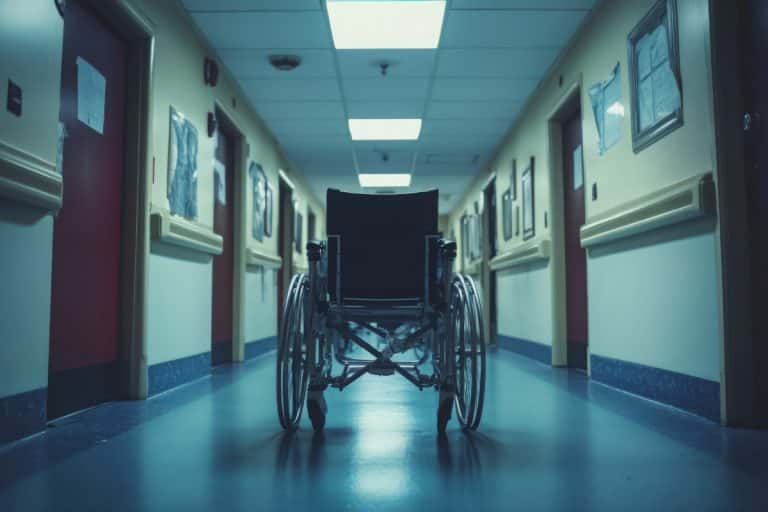Finding out that your loved one has been suffering abuse or neglect by the very people you entrusted to care for them is a painful realization. But there is a way to make things right. Filing a nursing home abuse lawsuit against the care facility lets you hold them responsible and can even win you compensation to help with your loved one’s recovery.
Before You Begin the Nursing Home Abuse Lawsuit Process
Before you seek to file a nursing home abuse lawsuit against a facility or abusive individual, it’s important to understand the following:
- Who can file: Only certain people are allowed to file a nursing home abuse lawsuit. This includes the person who was hurt or abused, the legal guardian of the victim, and/or the personal representative of the abuse victim’s estate.
- Lawsuit timing requirements: You only have two years from the time you discovered the abuse to file a claim. This is known as the statute of limitations. If you miss this deadline, you could be prevented from filing a lawsuit. However, if you are working with a nursing home abuse attorney, they may be able to help you extend the deadline.
- Proving abuse: Being suspicious that your loved one is being abused or neglected is not enough to file a lawsuit and win. You must prove that the abuse occurred. This requires gathering evidence such as photographs, emails, nursing home logs, medical records, and eyewitness testimony. Often, you need the help of a personal injury lawyer to uncover these pieces of evidence.
Nursing Home Abuse Lawsuit Process
If you are certain your loved one is suffering abuse in a nursing home, it’s time to file a lawsuit. Here’s a step-by-step guide detailing how a nursing home abuse lawsuit works:
- Attorney selection: To begin a nursing home abuse and neglect case, you must first contact an experienced law firm that represents defendants in nursing home abuse cases. Choose a law firm with a proven track record of holding wrongful facilities and abusive, negligent caregivers responsible for their actions, such as McDivitt Law.
- Information gathering: Your attorney will gather the facts about your case, including your loved one’s medical history and medical records.
- Filing the case: Once the necessary information is gathered, your attorney will file your case in court, and the nursing home and other defendants named in the lawsuit will be served. This must be done within the statute of limitations.
- Conducting discovery: Once your lawsuit is filed, your lawyer will conduct aggressive pre-trial preparations through a process called “discovery.” Discovery consists of acquiring depositions, interviewing medical experts, conducting interviews with eyewitnesses, and compiling evidence of the physical, emotional, and/or sexual abuse suffered.
- Case resolution: A resolution can be reached through trial, mediation, settlement, arbitration, or an administrative settlement. Regardless of how the case is resolved, your lawyer will be with you every step of the way to ensure that your rights are protected and that the abusive party is held accountable for their actions.
The Difference Between Nursing Home Abuse and Nursing Home Neglect
There is a difference between nursing home abuse and nursing home neglect cases. Nursing home abuse occurs when a caregiver or employee intentionally inflicts harm on a nursing home resident, while neglect refers to a failure to provide care to a resident.
Below, we’ve outlined some examples of nursing home abuse and neglect.
Types of Nursing Home Abuse
- Emotional abuse
- Physical abuse
- Sexual abuse
- Psychological abuse
Nursing Home Neglect
Neglect includes any failure to assist care facility residents with:
- Eating or drinking
- Going to the bathroom
- Physical therapy
- Mobilization
- Bathing/washing
- Requests for assistance
Signs of Nursing Home Abuse & Neglect
Not all nursing home abuse and neglect injuries are severe, leading loved ones and other nursing home staff to overlook them by accident.
Some of the most common signs of nursing home abuse and neglect include, but are not limited to:
- Bed sores
- Signs of dehydration, including dry mouth, low urine output, lethargy, and confusion
- Signs of malnutrition, including rapid weight loss, water-electrolyte imbalance, and muscle wasting
- Repeated fractures
- Repeated infections
- Rapid weight loss
- Unexplained bruises or injuries
- Numerous injuries at various stages of healing
- Unusual or sudden changes in behavior
- Severe depression or acting withdrawn
- Restraint marks
- Heavy medication or sedation
If you notice any of these red flags, it is important to speak to your loved one as soon as possible. Always speak to them in private and not in the presence of staff members.
During the conversation, encourage them to discuss their injuries and how they obtained them. Afterwards, review their medical records and discuss their injuries with multiple staff members and doctors. Don’t be afraid to strongly advocate for your loved one if you believe that something is wrong.
Once you feel confident that something is wrong, contact a nursing home administrator immediately. If you suspect that your loved one is in imminent danger, contact the police instead.
Who Can Be Held Responsible for a Nursing Home Abuse Lawsuit in Colorado?
Any person, contractor, or organization that was party to abuse can be held responsible for a nursing home abuse lawsuit in Colorado. These cases typically involve any of the following defendants:
- Care facility staff members: The individual who committed the abuse can be sued directly and held criminally liable if their actions qualify as assault.
- Nursing homes: Most often, the nursing home will be the defendant in a lawsuit. These organizations are fully culpable for staff conduct; they’re also responsible for keeping patients safe. So, when a caretaker abuses a resident, the nursing home can be held liable.
- Care facility contractors: Contractors for the care facility can be sued for abuse if they directly abuse the patient or neglect to protect them. For example, if a security company misses an instance of abuse after failing to replace a broken camera, they may be legally accountable.
Call McDivitt Law for Help with Your Nursing Home Abuse Case
If you or a family member has been abused at a care facility, McDivitt Law can help set things right. Click the button below to see how we can help you win a nursing home abuse lawsuit in Colorado.


